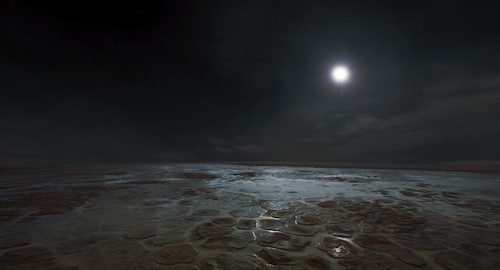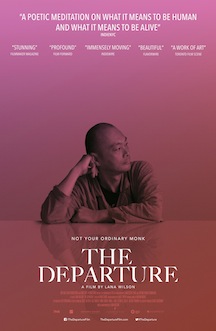Directed by Martin McDonagh
Country: USA
British-Irish writer-director Martin McDonagh (“In Bruges”, “Seven Psychopaths”) abandons a five-year hiatus from the big screen to prove with “Three Billboards Outside Ebbing, Missouri”, a commendable neo-noir crime film, that his filmmaking abilities matured considerably.
The story earns much of its grip through Frances McDormand, who delivers her best performance since “Fargo”. She compellingly embodies Mildred Hayes, a grieving mother who, in an unprecedented way, decides to call the community’s attention for the unsolved murder of her teenage daughter Angela. Her simple-yet-costly strategy consists in renting three decaying billboards, unused since 1986, and give them a new life by questioning directly the small town’s chief of police Bill Willoughby (Woody Harrelson) about the seven-month impasse in the solution of the case. She also talks on TV and radio stations, admonishes a priest with an elucidating discourse about culpability, attacks a threatening dentist and three scornful school kids, and makes everybody talk about her. In her stern look, we read: ‘don’t mess with me’.
Chief Willoughby, who is dying of pancreatic cancer, naturally got discomposed but he seems not to be the problem here, demonstrating his willingness to solve the mystery. The real problem is the second-in-command Officer Jason Dickson (Sam Rockwell), a picky, abusive, violent, and alcoholic agent who gets the worse bits of advice from his also alcoholic mother in a small town where being a racist and a homophobic seems customary.
Through a one-time flashback, we understand that Angela was a difficult teen. We also apprehend the pain and guilt Mildred is immersed into, a desperate state of mind turned into anger and bitterness, and captured by the illustrative frames from the director of photography Ben Davis (“Guardians of the Galaxy”, “Avengers”). Her estranged ex-husband Charlie (John Hawkes) humiliates her whenever he appears with his obtuse 19-year-old girlfriend while completely overlooking the existence of their depressed son, Robbie (Lucas Hedges).
Taking a few impactful twists and turns out of his sleeve, McDonagh skillfully channeled the story into a new direction, dropping the pitch-black atmosphere that dominated the first two-thirds of the film to embrace hope and restore the faith in a better world. What he never abdicated was the humor, which frequently transpired from the smart dialogues or uncomfortable postures evinced by the characters. Although remaining true to his own voice, McDonagh’s filmmaking style denoted influences from the Coen brothers and Robert Altman as he thrusts his fictional account at full force, without wasting a single minute in frivolities.
This tale of retaliation, redemption, and forgiveness, besides constantly spellbinding, has many important things to say. Perhaps the most immediate of them is that you can only learn from something bad if you let your anger go.










































